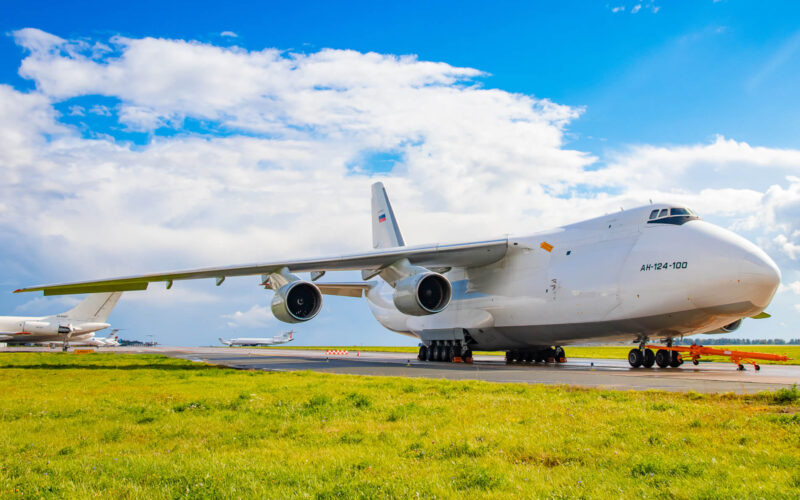The Russian airline Volga-Dnepr grounded its eight Antonov An-124 freighters after a serious engine incident. The immobilization poses a problem as freight transport capacities are already barely sufficient in this time of the COVID-19 pandemic.
The carrier notified the Russian aviation authorities of the grounding for an indefinite period of its eight An-124 freighters, the second-largest cargo planes in the world, following an incident in Novosibirsk.
On November 13, 2020, the Antonov An-124-100 freighter, registered as RA-82042, took off from Novosibirsk-Tolmachevo Airport (OVB) on its way to Wien-Schwechat International Airport (VIE). It was carrying 14 people and 84 tons of automotive spare parts.
During takeoff, the plane suffered what appeared to be an uncontained failure of the No. 2 engine. Following a preliminary investigation, Rosaviatsia found out that debris damaged the wiring and cut off the power supply, resulting in loss of communications, all electrical systems and instruments, brakes, and thrust reversers. The flight crew decided to go around and land back in Novosibirsk. Upon landing in the departure airport, the aircraft suffered a runway excursion and its nose landing gear collapsed.
Volga-Dnepr’s commercial director Konstantin Vekshin told the Loadstar that the decision to immobilize the fleet was taken preemptively, without any directive from either the Russian authorities or the Ukrainian manufacturer Antonov. “We have not received any official notifications or service directives yet, and there are no preliminary conclusions, so we have to suspend the entire AN-124 fleet with immediate effect,” Vekshin explained.
The Russian carrier will now have to find a replacement for the gargantuan capacity of its An-124s, as all of them had upcoming transport contracts. “It’s very painful for our customers right now, the market is booming,” commented Vekshin. Volga-Dnepr may rely on the 747-400F and 747-8F of its subsidiary AirBridgeCargo while awaiting a return in service of the An-124 which Volga-Dnepr hopes will happen within a period of “a few weeks.”

